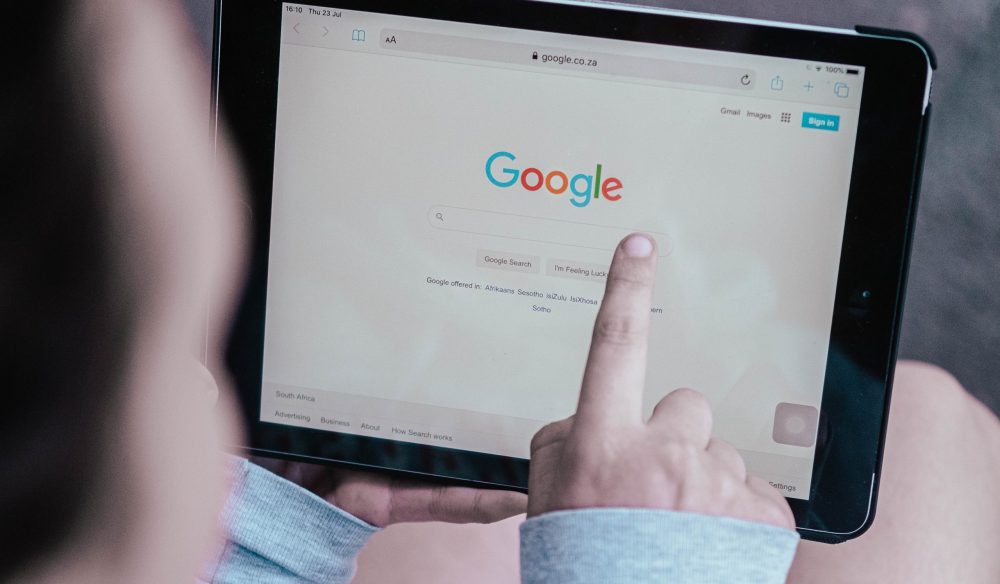A look at 2020’s biggest Google search trends — and what they can tell us about 2021
Here, you’ll find:
- A look at the biggest Google search trends of 2020
- The biggest lessons learned from these trends
- How these trends can inform 2021 marketing programs
- Tactical ways to use these search trends to your brand’s advantage
The results are in, and Google has dubbed 2020 the year of “Why?”
Worldwide, we asked the search engine why Australia was burning, why the pandemic couldn’t be contained, and made trillions of other search inquiries about everything from Kobe Bryant to Black Lives Matter.
Now, one of the most outrageous and unforgettable years is about to be (finally) in our rearview. Before we close the book, let’s briefly look back at what these search trends mean for digital marketing in 2021 and beyond.

Google worked hard to ensure that the information it served people on the search engine results page (SERP) was trustworthy and credible. (Image via Google)
Accuracy is more important than ever
No surprise here: Throughout 2020, millions of people asked Google about the coronavirus. They wanted up-to-date news, info about symptoms, and the latest stats for their area.
Between the pandemic and the year’s U.S. presidential election, accuracy became a top priority. Along with social media sites like Twitter (which added disclaimers to certain tweets to combat misinformation), Google implemented guidelines and standards to ensure that the information it served people on the search engine results page (SERP) was trustworthy and credible.
Whether or not it’s explicitly stated in your marketing plan, now is a great time to make sure everyone on your team is committed to Google’s E-A-T page quality rating guidelines. This acronym stands for expertise, authority, and trustworthiness.
You can do this through actions like adding bylines and author photos to your content and only externally linking to other credible websites.
People still gravitate to good storytelling
We’ve mentioned before that, from content to campaigns, storytelling is key to successful digital marketing. And what’s a better story than the one focused on heroes?
From healthcare workers and Ruth Bader Ginsburg to John Lewis and teachers who transitioned to virtual learning, we searched to find ordinary people doing extraordinary things. We focused on those living their lives in ways that will positively impact others, even in the midst of what felt like madness.
Of course, highlighting a hero’s journey won’t make sense for all brands all the time. But it’s worth keeping in mind that, no matter what trends come and go, great storytelling will almost always attract a second glance.
You may want to ask yourself: How can we illustrate the value of this product or service in a fun, interesting way? How can we show the target audience that we understand their pain points or needs? Storytelling is a great way to do just that.

Along with “Why” questions, how-to queries also dominated search in 2020. (Image via Google)
Educational content can get you far
From search queries to viral TikTok videos, how-to content reigned supreme in 2020. As people continued to shelter in place, searches soared for things like sourdough bread tutorials and how to make the Dalgona coffee every Gen Z-er seemed to be buzzing about.
With vacations and socializing on ice for the most part, people searched for new hobbies to adopt and creative ways to stay occupied indoors. They also used searching to navigate unprecedented events like hosting a Zoom wedding and how to craft a homemade cloth face mask.
One of the best ways to attract and connect with your audience is by publishing quality, educational content. Depending on your industry, this could be a downloadable guide, a step-by-step video tutorial, or a helpful 101 breakdown. Not only does this content often lend itself to improved SEO, but it shows your target consumers that you want to help them, not just promote your brand.
You can gain an edge by thinking globally
Perhaps one positive side effect of the pandemic is that it had us paying attention not just to our own state or country, but the world at large. We monitored global trends when it came to everything from infection rates to vaccine development.
But this global mindset wasn’t just about the virus. In the U.S., the #1 searched movie of 2020 was Parasite, a subtitled South Korean thriller directed by Bong Joon-ho. We also asked Google how to help Yemen and took virtual tours of attractions and museums around the world.
It’s a good reminder for marketers to take the time to zoom out every once in a while. What tactics are similar businesses in other areas or countries doing that you could try out for yourself? How can you ensure you’re thinking big picture while also paying attention to the details? (Hint: Conducting regular SEO and PPC audits can help.)
The biggest search trends are often the most unexpected
You can have all the data at your fingertips and feel confident in knowing where a new industry trend is headed next. But, much like everything else that happened in 2020, we learned that trends are unpredictable. There’s only so much you can do to determine what may or may not resonate.
For proof, look no further than a standout streaming series about playing chess, at-home haircuts, and a widespread coin shortage. It’s safe to say that it’s impossible to predict what’ll be trending in 2021. That’s why it’s crucial to stay on top of the latest industry news so you can see trends develop in real-time.
Pro tip: Subscribing to an industry newsletter is an easy way to be kept in the loop.
The takeaway
Like many other industries, digital marketing faced some difficult and unexpected challenges in 2020. Luckily, many marketing pros were well-versed in the fact that pivoting is often the name of the game. After all, technology is advancing more quickly than ever, and new trends crop up every day.
No matter what lands on 2021’s top Google searches list, it’s clear that some things — such as putting your audience first, speaking with authenticity, and telling an impactful story — are likely to stay the same.
Looking to amp up your digital marketing ROI in 2021? We can help.

